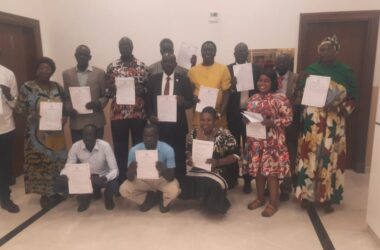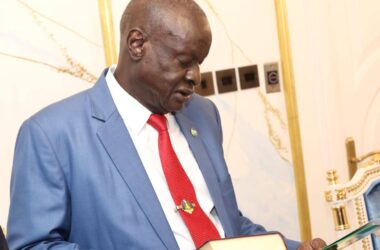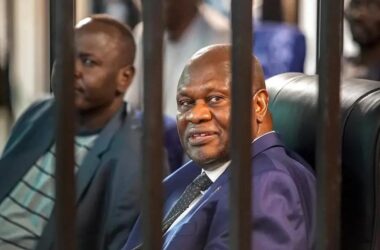By Deng Ghai Deng
South Sudan’s government appears to have surrendered substantial territory to Uganda, as local authorities in Pogee, Magwi County of Eastern Equatoria State and parts of Central Equatoria State continue to report significant encroachments by the Uganda People’s Defense Force (UPDF).
The situation has ignited alarm among residents and raised serious concerns about the government’s silence on the annexation.
Last week, officials in Pogee reported that the UPDF has increasingly occupied South Sudan’s land, displacing local communities and establishing several settlements in previously South Sudanese-held areas including Katoko, Gotlela, Arambeel, Adodi, and Paragadwanya.
The UPDF has reportedly set up over eight new military barracks along the border and deployed additional patrol forces, further exacerbating the tension in the border areas.
While in Kajo-Keji, local authorities have reported over 100 villages have been taken by the UPDF.
Despite the mounting outcry from local citizens and the clear violations of territorial integrity, the Ministry of Foreign Affairs and the Office of the President, have remained notably silent.
This lack of response has been interpreted by some experts as an indication of internal political and economic struggles that may be compromising the government’s ability to defend its sovereignty.
Professor Abraham Kuol Nyuon, a political science expert and principal of Graduates College at the University of Juba, suggested that the South Sudanese government’s inaction could be a strategic move influenced by internal complexities.
According to Prof. Nyuon, the ongoing internal conflicts, ethnic tensions, and economic downturns have weakened the South Sudan People’s Defense Force (SSPDF), undermining its capacity to effectively counter external threats.
“The silence on this issue could be seen as a tactical decision to preserve vital trade relations and avoid provoking Uganda, which has historically been involved in South Sudanese affairs,” Prof. Nyuon stated.
“The government might fear that a confrontation could drive Uganda to support opposition groups, potentially destabilizing the current regime.”
Additionally, Nyuon pointed out that the economic reliance on Uganda, which serves as a major trade route and partner, might be a factor in the government’s decision to downplay the encroachment.
“We know into it that Uganda is the only source of livelihood within South Sudan. It is the major trade route and Uganda is a significant economic partner for South Sudan and this content could undermine economic cooperation,” Nyuon added.
The lack of a robust response to the UPDF’s actions has led to concerns about the legitimacy of the government and its commitment to protecting national sovereignty.
Prof. Nyuon warned that the ongoing territorial encroachment highlights the urgent need for South Sudan to reassess its military readiness and strategic posture, emphasizing that underestimating the UPDF’s capabilities could pose significant risks.
When reached for comment, Maj. Gen. Lul Ruai Koang, the spokesperson for the South Sudan People’s Defense Force (SSPDF), confirmed that the military is aware of the encroachments by the UPDF.
He stated that the SSPDF has been actively engaging with its Ugandan counterparts to address the situation and seek a peaceful resolution, but these efforts have not yet yielded results.
“The issue of encroachment has become a national issue that requires a political decision,” Koang said.
Gen. Koang also mentioned that a high-level committee had been established by both militaries to examine the border issues, referencing colonial maps that outline the boundaries from the time when Uganda and Sudan—now South Sudan—were under British rule.
South Sudan’s government faces mounting pressure from citizens to address the territorial infringement and safeguard its national interests.




